Search result

Huawei founder Ren Zhengfei spoke to Chinese media on Tuesday a few days after U.S President Trump issued orders to blacklist Huawei's business in the United States. He seems relaxed and confident despite of the situation that may cause a huge damage to the company. He said, United States underestimates the company's strength. Many suggest that it is an attempt to stop the company's global ambition and possible domination in next-generation 5G technology. He said, Huawei's 5G will absolutely not be affected. In terms of 5G technologies, others won't be able to catch up with Huawei in two or three years.
Last year, Trump declared a so-called national emergency which empowers him to blacklist companies seen as ‘an unacceptable risk to the national security of the United States' - which seem to be clearly aimed for Huawei. At the same time, the US commerce department announced an effective ban on American companies to stop them to have any kind of business with Huawei. Ren said, we cannot be isolated from the world. We can also make the same chips as the US chips but it doesn't mean we won't buy them.
Google's operating system Android powers most of the smartphones in the world. After trump administration bans, Google announced to cut-off its ties with Huawei and suspended its licenses for Huawei. Although the company can still use the open-source version of the operating system. This move could have some serious negative implications on the company and its consumer, as the telecom company will no longer be able to access Google's proprietary services such as Gmail, Google maps etc. The US commerce department gave 90 days temporary license to deal with the impact, but Ren said, that we are ready. Huawei said, that Google and the company is working on terms how to deal with the ban as it referred the Google as a highly responsible company. A company spokesperson in Australia said the US actions "will not impact consumers" with a Huawei tablet or smartphone in the country, or those planning to buy a device in the future.

Smartphone sales will decline by 3.2% by the end of year 2019, their worst decline ever, according to analyst firm Gartner. However, this could be changed: The slow adaptation of 5G networks and 5G smartphones will help the smartphone market return to growth in 2020 by 2.9%, Gartner said Thursday. Even so, total smartphone sales won't surpass 2018 levels until 2021. 5G phones will account for more than half of all phones sales in 2023, Gartner predicted. More than a dozen service providers have launched commercial 5G services in a handful of markets, noted Ranjit Atwal, senior research director for Gartner.
Gartner said 56% of phones sold in 2023 will run on 5G chips, which will be 10% more from what we will have in 2020. Less than half of global service providers will have launched a commercial 5G network in the next five years, Atwal said. A number of analysts have said the smartphone decline is due to the great hardware of the latest devices. "Consumers hold onto their phones for more than 3 years now, given the limited space for the new technology," said Atwal. There are about 5 billion mobile phones in use around the world, including smartphones and other mobile phones, some of them several years old.
Premium smartphones in recent years, like Apple's iPhone and many models of Android phones from Samsung and others, have a longer hardware life time than it was in the past. They are doing well even beyond a traditional two-year time frame, because of their quality and tech features. "Unless the devices provide significant new utility, efficiency or experiences, users do not necessarily want to upgrade their phones," Atwal added. All types of devices, including smartphones and other mobile phones, PCs, and tablets will see a decline of 3.7% in 2019, with shipments dropping to 2.140 billion devices from 2.223 billion in 2018. By 2021, the number of devices will recover some to 2.157 billion devices.
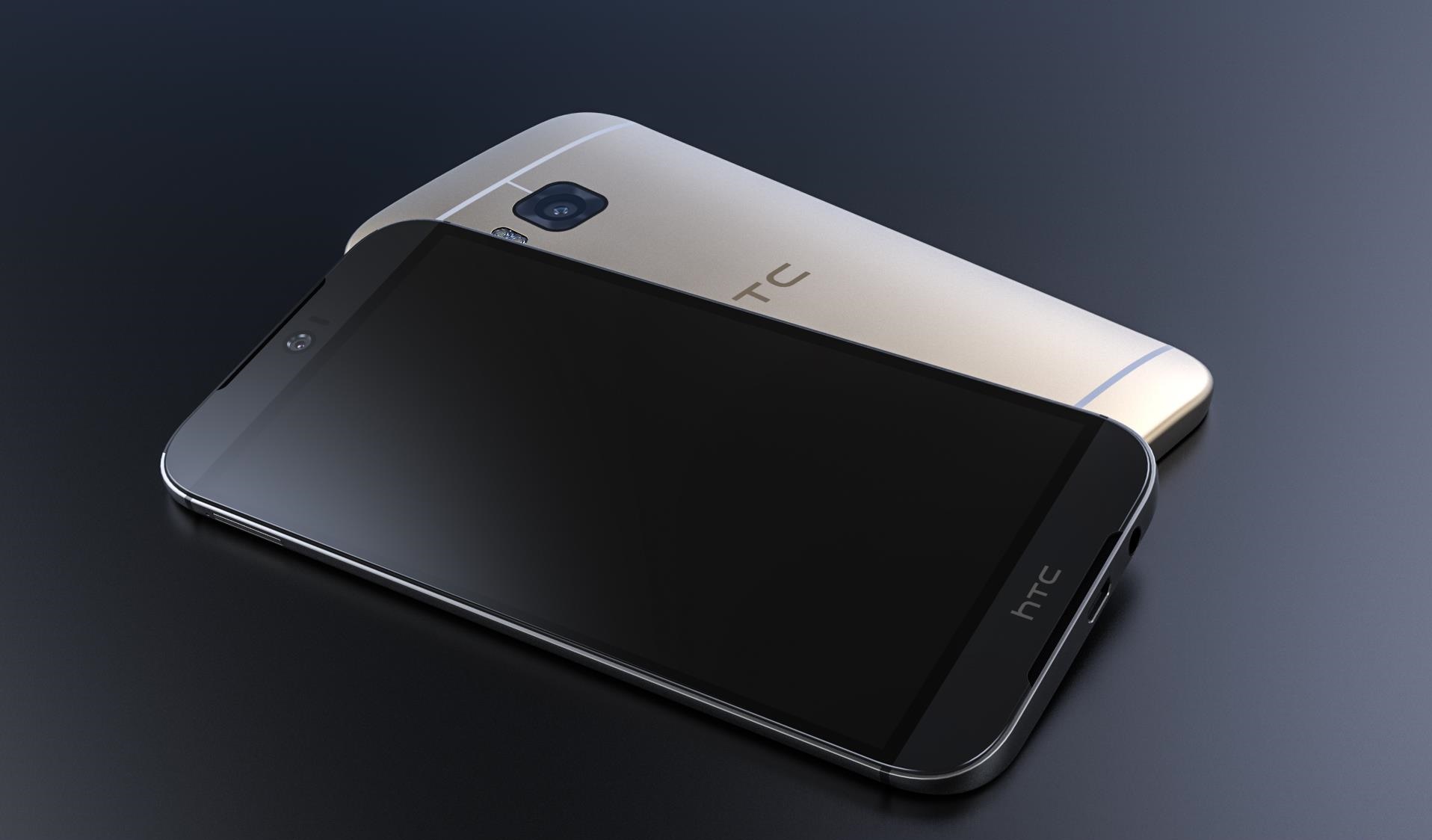
Samsung and LG enjoyed the limelight with their premium smartphones. Now the time is heading towards HTC. They are going to showcase the next flagship device with a very powerful snapper.
"We can confidently say that HTC will have a very, very compelling camera experience," said Chief Financial Officer Chialin Chang on Thursday during an interview at the Mobile World Congress event in Barcelona. He also added the follwing - "We're making this comment after we've seen what's going on in the market."
When One M9 was launched last year, there were concerns about its camera, and this time with the rumoured One M10 they are planning to find a solution to this.
The next smartphone and the Vive virtual reality gadget are the steps taken by HTC to revive their brand as a buzz creator. The Taiwanese company has been going through tough times with losses getting reported continuously in three quarters.
More about Vive
HTC garnered larger presence in the MWC events mostly for its Virtual Reality system called Vive (co-produced by game developer Valve). This would cost $799 and advance orders will be taken from 29th February.
As per Wang, as there is coupling of the two wireless controllers with the Vive, it puts this system in a better position when compared with Oculus. The Vive lets you to get up and move around in a restricted space, when the Oculus makes users stay still. Consumers are savvy enough to catch the difference and find the benefit.
More about the smartwatch
HTC's fitness tracker device - the UA Band has been getting very good traction in the market and because of this they are increasing the production number.
The executives from HTC informed that they'd need to figure out the positioning of the smartwatch when it comes to join other smart devices offered by HTC. As per Wang's words -
"When HTC comes out with a smartwatch, we will turn the industry on its head."
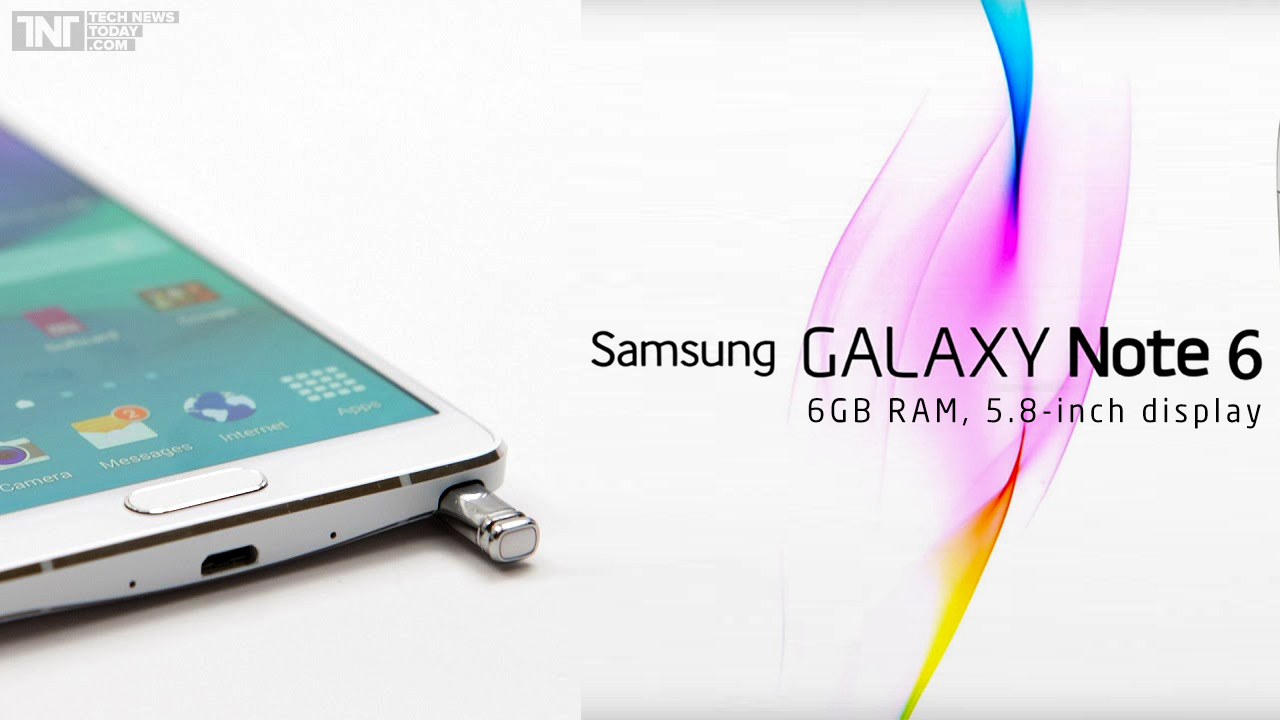
Till now, the rumor mill has produced news that the upcoming Samsung Galaxy Note 6 will feature 6GB of RAM, a 5.8-inch touchscreen (mostly probably keeping the QHD resolution), a 12 MP primary snapper, and 64 or 128GB of storage space (might go up to 256GB).
Recently another update came into the limelight. As per a new report, the Note 6 will have IP68 certification. This essentially means that the Note 6 will be dustproof and the water resistance will be at par with the Galaxy S7 - capacity to withstand submerging in water with 1.5m depth for close to 30 minutes.
The phone will supposedly boast an iris scanner, as per a new news released earlier today from an interesting import of this smartphone into India. Contrary to what has been with the earlier versions of this smartphone series, this new Note 5 will be available in the European market. The handset could be released as early as June, as per the opinion of certain analysts. That being said, Samsung could also follow the general schedule for Note launches and unveil it in late August or early September of this year. Right now it is indeed quite tough to predict the Korean giant's course of action.
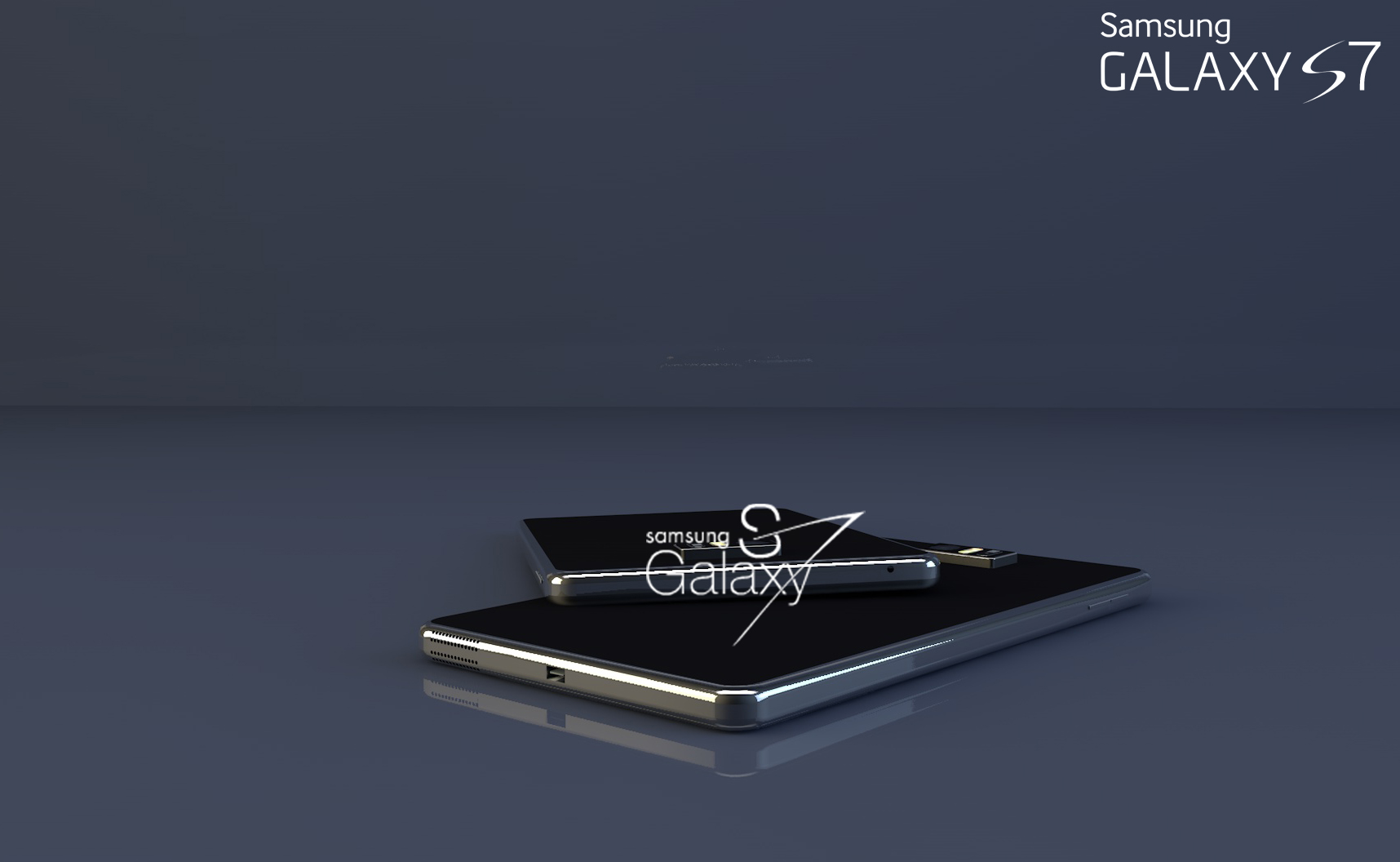
Evan Blass, a tipster posted a tweet on Friday, disclosing that the Samsung Galaxy S7 will be released in the U.S. on Friday, March 11th. We anticipate that the latest flagship smartphone will be announced on February 21st during Samsung's Unpacked 2016 event. This is also the day before the 2016 Mobile World Congress to be held in Barcelona.
As per the latest speculations surrounding the Samsung Galaxy S7, it will feature a 5.1-inch display with a 1440 x 2560 resolution. According to user's location the device will be backed by either the Snapdragon 820 chipset (US. and China) or the Exynos 8890 SoC (for the rest of the world) developed in-house. There will be 4GB RAM is along with 64GB built-in storage as revealed in a recently conducted AnTuTu benchmark test. The camera in the back will be of 12 MP and the front one will have 5MP.
During the release of Galaxy S7, it is expected that the Samsung Galaxy S7 edge with larger screen will also be made available. This variant will feature a 5.5-inch 1440 x 2560 resolution display. Some are saying that the Galaxy S7 series will get couple of features initially found on 2014's Samsung Galaxy S5 that that were not available in 2015. For example: a microSD slot, IP67 certification (proof of protection from dust and water), and a replaceable battery.
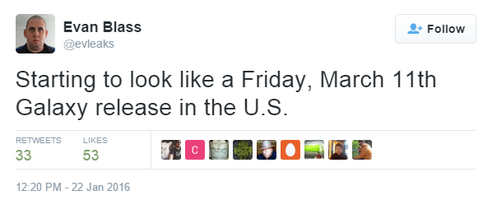
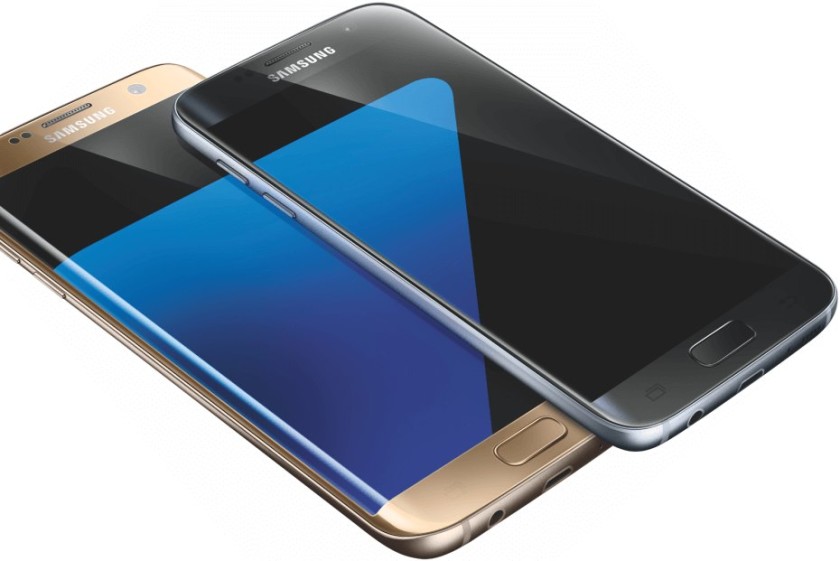
By now, the entire world knows about the Note 7's safety failure and even then, quite a number of the customers who had bought the phone are refusing to give it up. While Samsung and the carriers are trying to persuade everyone to exchange the potentially explosive Note 7, a few new reports have also emerged from different sections of the globe that even some of the phones in the S7-series are catching fire spontaneously. As these reports have given rise to confusion and fear among its customer base, Samsung has decided to come out with a statement which officially establishes the S7-lineup as completely safe to use under normal conditions.
"Samsung stands behind the quality and safety of the Galaxy S7 family. There have been no confirmed cases of internal battery failures with these devices among the more than 10 million devices being used by consumers in the United States; however, we have confirmed a number of instances caused by severe external damage. Until Samsung is able to obtain and examine any device, it is impossible to determine the true cause of any incident."
If you are planning to buy a smartphone this holiday season, will you be opting for a Samsung?
Saikat Kar (tech-enthusiast)
Google says the Android platform is more secure than ever, although there has been an increase in the number of potentially harmful applications (PHAs). In its latest Android Security & Privacy Year in Review report for 2018, Google says threats continue to be observed in apps that are pre-installed or are packaged in over-the-air (OTA) updates.
Android security has been a consistently hot topic through the history of the platform. Google's OS has often suffered from breaches in security, mostly delivered to smartphones through apps and browsers. Needless to say, security problems can cause problems when you are trying to enjoy bonuscode.my on your device browser or performance simple everyday tasks.
Image credit: pixabay.com
Google has often defended Android by saying the operating system is completely secure in its stock form. The problem is OEMs take the platform and add their own services and UI touches to it, often compromising Google's own security mitigations. This problem is made worse by many OEMs delaying security patches and system updates for months.
Over the last five years, Google has published its Android Security & Privacy Year in Review, which details the threats and vulnerabilities that have impacted the OS. In 2018, the company says a rise in PHAs caused the biggest cause for concern.
"Malicious actors increased their efforts to embed PHAs into the supply chain using two main entry points: new devices sold with pre-installed PHAs and over the air (OTA) updates that bundle legitimate system updates with PHAs," wrote Google in its Android Security and Privacy Year in Review 2018.
Despite a rise in PHAs, Google says the number of those threatening applications landing on Android devices actually declined by 20 percent last year. Indeed, just 0.08 percent of all Android devices were affected by PHAs during 2018.
While this is impressive, it is data that should be taken with a pinch of salt. The problem with Google's annual report is that it only charts applications that were downloaded from the Google Play Store. Sure, most apps end up on Android devices via the store, but there are other stores and places users can download apps from. Google does not keep data on PHAs from these less secure services.
It is also worth noting that Android is now on over 2 billion devices around the world. That means 0.08 percent of devices Google says were affected by PHAs in 2018 amounts to over 1.6 million smartphones affected, a pretty large number.
In terms of specific regions, Google says India has shown a security improvement on Android devices. In the platform's "biggest market", security threats and exploits are frequent, but improvements are being made in India.
For example, Indian Android devices became 35 percent cleaner throughout 2018 compared to 2017, with only 0.65 percent of handsets affected by PHAs at a single time. In fact, Google says Indonesia is now the leading nation in terms of PHA spread.
Despite steps in the right direction in India, the country remains the most likely to receive Android trojan attacks, with 22.4 percent of all global cases.
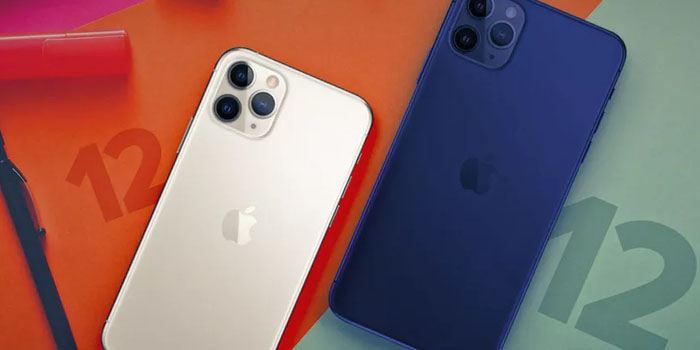
We all know Google is facing potential anti-trust actions by the Us department of justice and that concerns many companies and stakeholders like Apple who has been developing its own search engine to replace Google on iPhone and other devices. Recently Financial Times report new hirings made by Apple to work on its version of the search engine. There were also some other hints presented by the same company as evidence to be conclusive in its report.
The article cites Apple's 2018 new hiring of John Giannnadrea, former Google head of search to improve its AI technology and Siri, while other job listings suggested Apple's effort to stop relying on Google. Meanwhile, the web crawler Applebot has seen an increased activity for years, potentially laying the groundwork for a search engine. The search engine spider's activity spiked around the launch of iOS 14 when developers began noticing Applebot visiting their sites and pages, as MacRumors noted.
The latest reports aren't based on rumors alone. Apple had allegedly been buying up datacenter, servers, hardware components in the lead up to the October launch event, according to sources within the tech giant's supply chain. It is not surprising that Apple has taken a few years to develop its own search engine, as Google has had decades of research ahead of its search market dominance.
Apple has a slight advantage over Google as it already has its share of the market of devices, like the newly launched iPhone 12, iPhone 12 Pro, and iPad Air 4, as well as the next iPhone 12 mini and iPhone 12 pro max. Google is the default search engine on all Apple devices so far, taking in more than $7 billion per year for being a partner with the company.
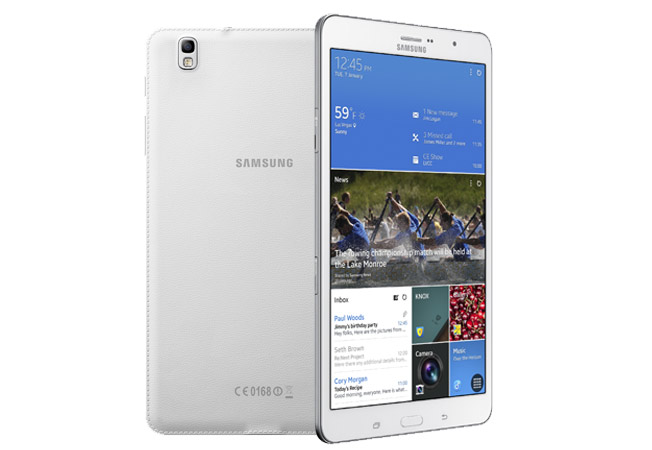
While most users are eagerly waiting to get their Android devices updated to Marshmallow, there are some still stuck on KitKat. For example, Samsung's Galaxy Tab Pro 8.4 has not yet got any OS update, although last year it was launched with the Android 4.4. Hence, an owner of this tablet finally used Twitter to get the answer from Samsung's arm in the UK about a Lollipop or Marshmallow update for the Galaxy Tab Pro 8.4.

The response from the Korean giant was "no". This tablet will never see an OS upgrade. So no Android 5.0, 5.1 or 6.0 for the device. This essentially means support for this tab has terminated from Samsung's point of view. It's an interesting news, especially considering that the not much newer Galaxy Tab S 8.4 has at least Lollipop. This was done way back in April and it seems Tab Pro won't have the same luck.
As a final word of advice, just remember that this information might only be valid for tablets sold in the UK, as it's Samsung's UK branch delivering this disappointing news. That said it is almost certain that there won't be any OS update for Tab Pro in any other region.
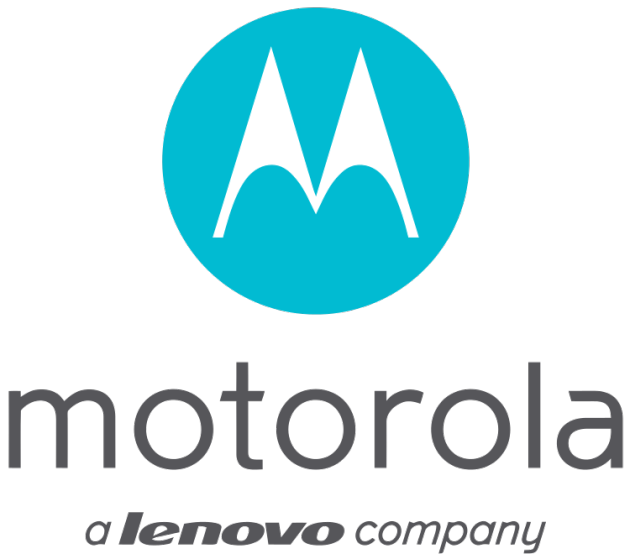
At the CES 2016, Lenovo has officially declared the end of Motorola as a brand name in the smartphone business. Although the news may make some of us feel a tinge of sadness as the name "Motorola" itself is iconic as well as nostalgic for many of us, the decision wasn't exactly a surprise. Lenovo bought the company from Google back in 2014 with the hopes of gaining a firm foothold in the mobile phone industry by using Motorola's popularity.
Lenovo further stated that the Motorola team will still be making phones, but the branding will change to Lenovo instead. However, the famous "M" logo is not going away. We think that this decision of keeping the logo even after doing away with the brand name was made so as to win over the loyal fan base that Motorola has been supported by, over the years.
Back in 2005, Motorola was the biggest name in the phone business and everyone wanted a Moto Razr V3. The company lost ground since, as Samsung and Apple muscled in with Android and iOS respectively. After falling from a great height, the ownership of the company changed hands multiple times and finally at Lenovo, it seems that the struggling brand name is coming to an end.
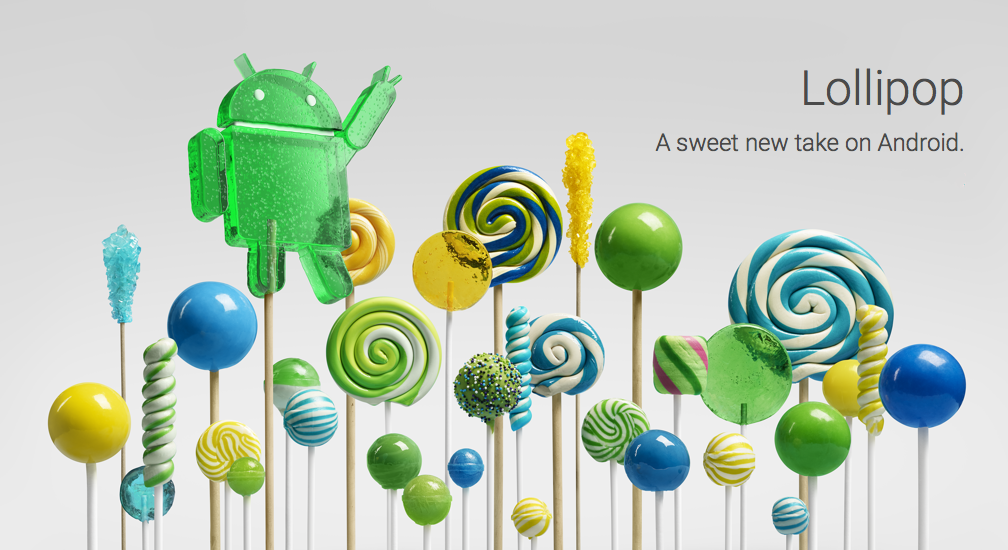
We all are waiting for Google's Next Android version which will be called Android 5.1 "Lollipop", it's rumored to be released as an OTA update for the nexus line-up very soon. Today, HTC's VP of Product Management said on his twitter account that Android 5.1 will be released in March.
He used Twitter to tell an inquiring HTC One Google Play Edition owner that a bug fix he was waiting for would be rolled out as part of "Google's next MR, which is in March".
"MR" stands for "maintenance release", and from what we've heard so far Android 5.1 promises to be just that and nothing more. So there's a high likelihood that Versi was in fact referring to this version in his tweet.
@JensEsbjerg It'll be tied to Google's next MR, which is in March. Thanks.
— Mo Versi (@moversi) February 18, 2015
© 2023 YouMobile Inc. All rights reserved






